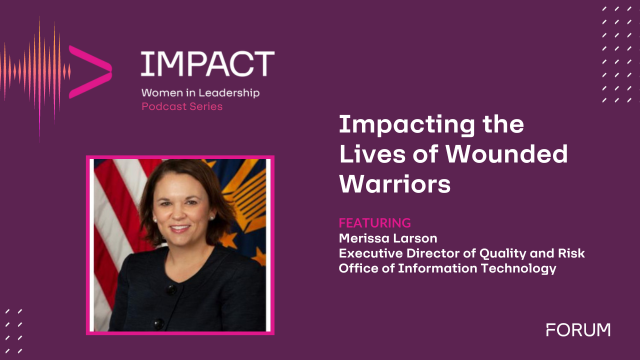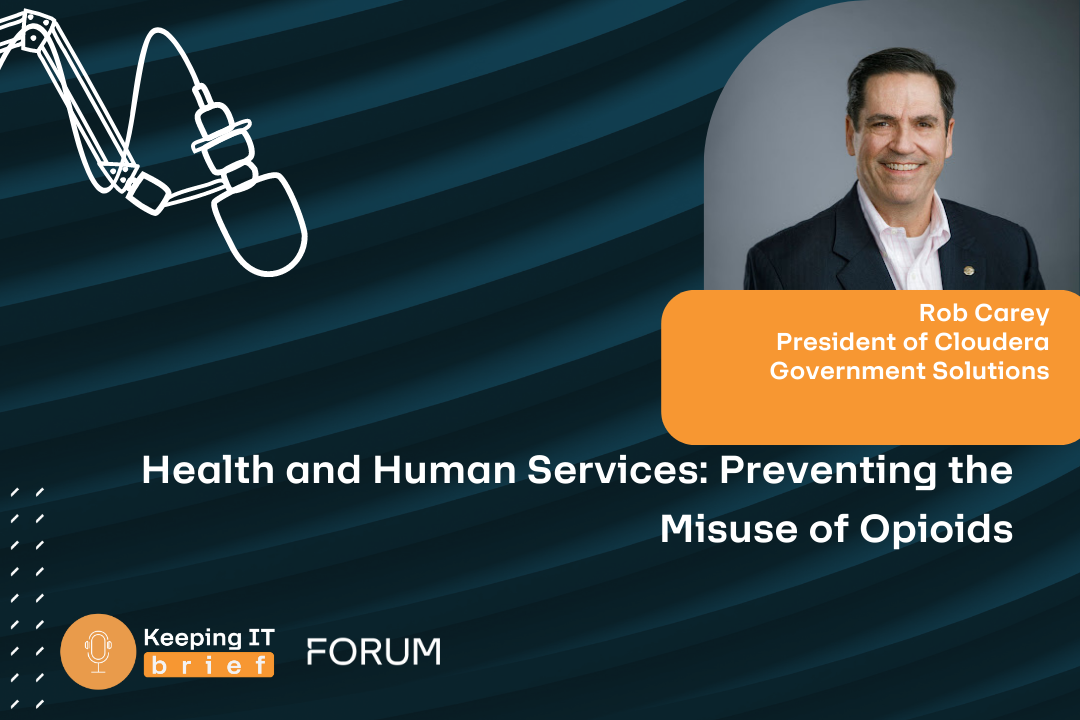I grew up in the 1960s. The Coronavirus pandemic has made it feel like the 1960s. People aren’t traveling much, aren’t dining out much and are spending more time with close family, just like during the 1960s. Our lives have been upended by Coronavirus and life as we knew it has changed, hopefully for only a short and temporary period of time, at least in some of the more negative ways. Spending more time with family is always a win.
Just as COVID-19 upended our personal lives, it has also upended the lives of Government officials and contractors alike. Some of the changes are obvious and others are more obscure and hidden inside the walls of Government. However, as I’ve talked to officials inside and outside of Government, there are a few key distinct changes we all may feel and not necessarily see. Hopefully, I’ll be able to bring some of these areas to light.
Emergency Acquisitions During this Pandemic
I had a colleague from industry call me in April and say, “Brian, do you know FAR Part 18?” My immediate response was: “What in the heck is FAR Part 18?” After the call, I asked some of my colleagues, formerly from inside Government. Together we had over 130 years of contracting experience. Like me, my colleagues had never heard of FAR Part 18. Back to the initial call. While still on the phone, I immediately picked up a hard copy of Federal Acquisition Regulation – yes, I have this always sitting on my desk – opened to FAR Part 18 and immediately saw the words: Emergency Acquisitions.
As a result of the COVID Pandemic, most Federal agencies have the ability to use the FAR’s Emergency Acquisition Authority, as is noted in the CARES Act. This means that agencies may be and have been competing contracts less often and using streamlined processes to make their awards. What does this mean for industry?
GAO Report, GAO-20-632 issued in July 2020 noted that:
“Federal agencies awarded $17.8 billion in contracts as of mid-June 2020 for critical goods and services supporting responses to the COVID-19 pandemic. Contracts often play a key role in federal emergency response.
The Departments of Health and Human Services, Homeland Security, Defense, and Veterans Affairs accounted for 85% of the money awarded in contracts. About $11 billion was awarded in contracts for goods—e.g., ventilators, gowns, and N95 respirators—to treat coronavirus patients and protect health care workers. The agencies awarded about $9.4 billion in contracts without competition, often citing urgency as the reason.”
As noted by GAO, agencies are awarding a lot of contracts noncompetitively. Also noted is that a significant amount of funding is being spent on the pandemic, which means less money may be available for new and existing programs/contracts.
FAR Part 18 is essentially a great summary of tools available in a contracting officer’s toolbox to award contracts in a hurry for “emergency” situations. A few of the unique processes include Letter Contracts (I’ve done these in the past) and Oral Requests for Proposals. There are a few tools/processes Government agencies could perform during this emergency period not noted in FAR Part 18, including awarding logical follow-ons to IDIQ Orders (FAR Part 16.505) and extending existing contracts for six months (FAR 52.217-8).
Individual department and agency contracting offices may also be taking steps to award contracts in a fast and efficient manner due to Unusual and Compelling Urgency, National Security or Public Interest (FAR Part 6.302). In fact, HHS issued a “Class Justification for Other Than Full and Open Competition COVID-19 Response” in which its contracting offices have authority to make contract awards in a streamlined approach. The Class Justification, with an estimated value of $30 billion dollars, allows HHS Agencies the authority to make COVID-19 response awards based on Unusual and Compelling Urgency (FAR 6.302- 2), Limiting Sources (FAR 8.405- 6(a)(1)(A)) and Exceptions to Fair Opportunity (FAR16.505(b) (2)(i)(A)). Contracting Officers now have the flexibility to limit competition to make their awards if they have COVID-19 implications. This may be a big advantage or disadvantage to your company.
Talk to Government officials in your agency and find out what they are doing to award contracts in a streamlined manner during this pandemic. In addition, if you are unfamiliar with FAR Part 18, I recommend that you read it and dive into some of the unique emergency contracting flexibilities available to Government agencies. It may help you to win a contract or to extend existing ones.
Harder to Communicate, Contact and Engage Government Officials
During this pandemic, the rules of communication and engagement with Government have been upended. Face-to-face contact, the best way to build a relationship, has gone by the wayside. No longer can we go to a meeting and shake hands with a Government official and/or build a bit of trust to help secure a future meeting. Companies who provided a platform for Government officials to speak, so you could personally meet them, are now doing it on-line. These virtual meetings are effective to find out what is going on in an agency and their pain points, but they are not effective to build relationships with agency officials. Those days of meeting agency officials in-person may be gone for the immediate future, if not forever.
Staying engaged with Government officials is more difficult than ever. If you have work in an existing agency, you now have a real advantage because the Government officials are more walled-off than ever. We thought 9/11 and the security challenges of that made it difficult to access Government officials. Well, welcome to our real new world.
So, what do we do if we have an existing contract? We must stay engaged, leverage the existing relationships to expand meeting with other agency officials, prepare white papers to help the agencies save money and solve problems. We do know that since agency officials are working at home, they are probably taking the time to review all of their emails. They probably have more meetings and spend less direct time engaging their staff directly, which means there is more time to review emails and to engage with you. In addition, staff are probably communicating more via email, meaning there will be a greater chance they will read your messages.
If you do not have a contract at your targeted agency, good luck! More planning and strategy is required to break-in. That means, just like the past, you should probably subcontract with a partner first to build some trust at the agency and to find out and understand their real pain points. Determine ways to help them save money and solve problems and you may be lucky enough to obtain a meeting with an agency official. Federal officials’ relationships with existing contractors are more entrenched than ever before, so you may need the right person to help you break down the barrier. Now that these barriers have been created, more than ever, it is critical for the Federal officials to hear new and creative ideas from industry.
Just like the 1960s brought in an era of civil rights, peace, freedom and the “Love Generation” that changed our society forever, the COVID pandemic has changed many aspects of our society forever. The “Good Old-Days” of Government contracting changed after 9/11 and now are changing again. However, we will all adjust, change and continue to serve and to find new opportunities and adventures on the road to success. I told my wife recently, “I don’t know where I’m going, but I know I’m gonna get there.” The bends and turns in the road to engage Federal officials have changed, but we’re going to find our path forward. It‘s what we do and why we keep pushing and striving to help to continue to make this country the greatest country in the world.
About Brian Hebbel
 Brian Hebbel had more than 34 years of Federal contracting experience, prior to his retirement in 2017. He was a Senior Acquisition Official (Group Director) at the Centers for Medicare & Medicaid Services, Office of Acquisition and Grants Management. Prior to his retirement, he was the longest serving contracting official at CMS, and provided oversight to three contracting divisions awarding $1,500,000,000 in contract awards in FY 2017 and providing guidance to acquisition strategies and schedules, solicitation requirements, source selection and resolving complex contracting issues. He is an author of “How to Market & Sell to the U.S. Government, A View from the Inside”. Brian is the President of BARC Business Advisors LLC, to Bring Acquisition Results to Contractors (BARC).
Brian Hebbel had more than 34 years of Federal contracting experience, prior to his retirement in 2017. He was a Senior Acquisition Official (Group Director) at the Centers for Medicare & Medicaid Services, Office of Acquisition and Grants Management. Prior to his retirement, he was the longest serving contracting official at CMS, and provided oversight to three contracting divisions awarding $1,500,000,000 in contract awards in FY 2017 and providing guidance to acquisition strategies and schedules, solicitation requirements, source selection and resolving complex contracting issues. He is an author of “How to Market & Sell to the U.S. Government, A View from the Inside”. Brian is the President of BARC Business Advisors LLC, to Bring Acquisition Results to Contractors (BARC).

![iStock-164495053 [Converted]-01|A YOUNG BRIAN |](https://i0.wp.com/insights.govforum.io/wp-content/uploads/2022/09/iStock-164495053-Converted-01-1.png?resize=696%2C391&ssl=1)










